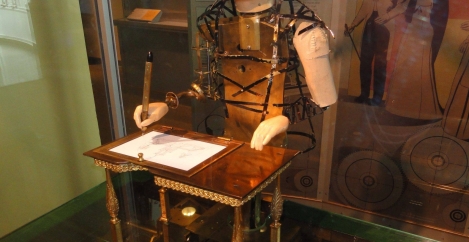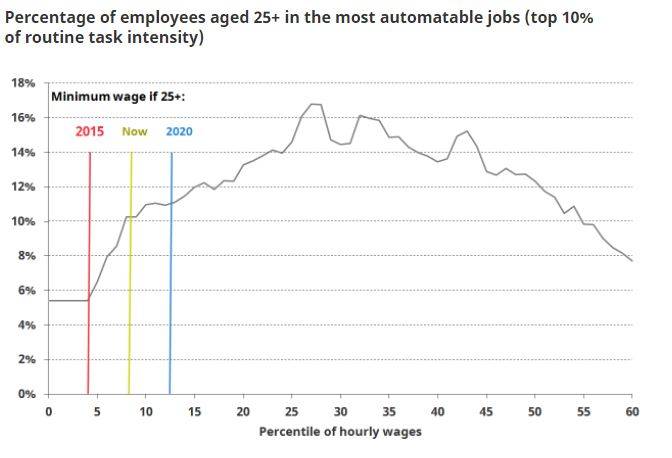January 5, 2018
Automation will impact low paid jobs first because of the living wage, report claims
 The development of the living wage coupled with the growing automation of tasks could create a perfect storm that prices a growing number of people out of the jobs markets, a report from the Institute of Fiscal Studies claims. The authors suggest that one of the unintended consequences of the increase of the rate to £8.50 by 2020 could be that people in low paid work could find themselves in competition for jobs with robots and artificial intelligence. The report concludes that there will be a tipping point at which human labour becomes economically unviable, although it does not predict when that will occur.
The development of the living wage coupled with the growing automation of tasks could create a perfect storm that prices a growing number of people out of the jobs markets, a report from the Institute of Fiscal Studies claims. The authors suggest that one of the unintended consequences of the increase of the rate to £8.50 by 2020 could be that people in low paid work could find themselves in competition for jobs with robots and artificial intelligence. The report concludes that there will be a tipping point at which human labour becomes economically unviable, although it does not predict when that will occur.
The living wage is based on the amount an individual needs to earn to cover the basic costs of living, and unlike the minimum wage is an entirely voluntary idea for employers to adopt or not. It is promoted by the Living Wage Foundation. Because living costs vary in different parts of the UK, there is a different rate for London and the rest of the UK.
The IFS claims that as the living wage rises faster than average earnings, more people are paid at that level. In 2015, 4 percent of people aged 25 or over were on the living wage but that is expected to hit 12 percent by 2020. The report’s authors suggest that the roles affected will increasingly include jobs which are more susceptible to replacement by automated systems and AI.
The report is reluctant to be too prescriptive in its conclusions. “As with other causes of job loss, it would matter greatly whether anyone who did lose out from automation quickly found adequate re-employment”, it states. “Moreover, the use of technology to replace some jobs can create new jobs that are complementary to that technology. Research in the US has found some negative impacts of higher minimum wages on the employment of low-skilled people in automatable occupations whilst also finding evidence of concurrent employment gains among other groups, with mixed evidence on whether the new jobs that were created were also filled by low-skilled workers or instead were likely to be benefiting those with higher skills. Some workers may themselves be ‘upskilled’ as a result of the higher minimum wage, and hence remain in employment but end up doing a somewhat different job from the one they did before.”

















